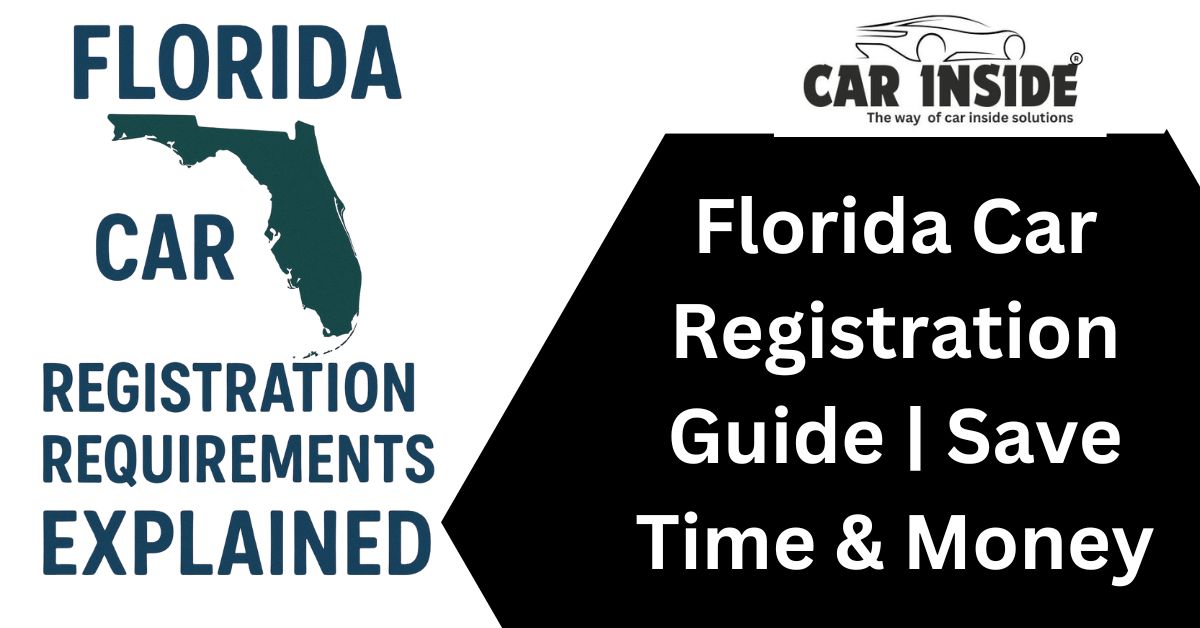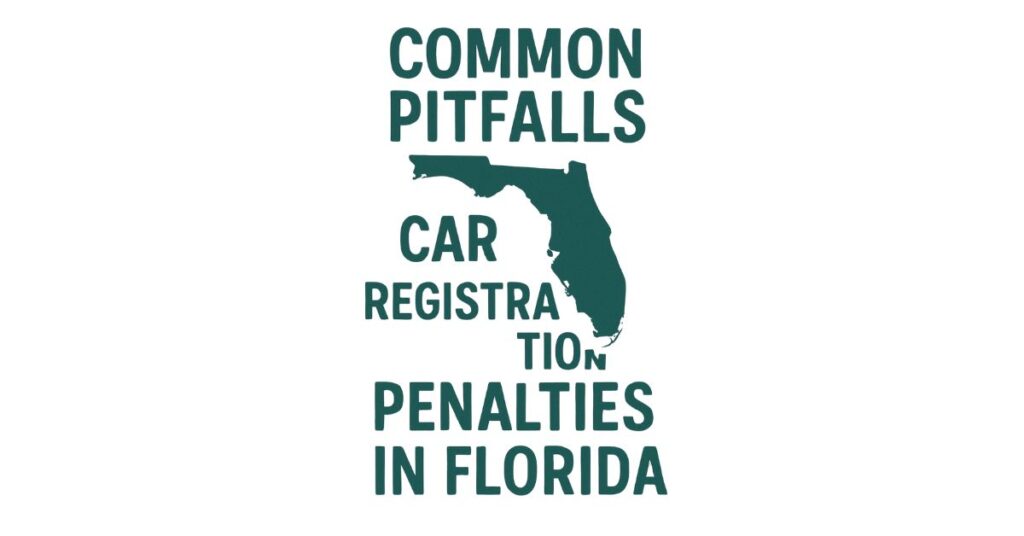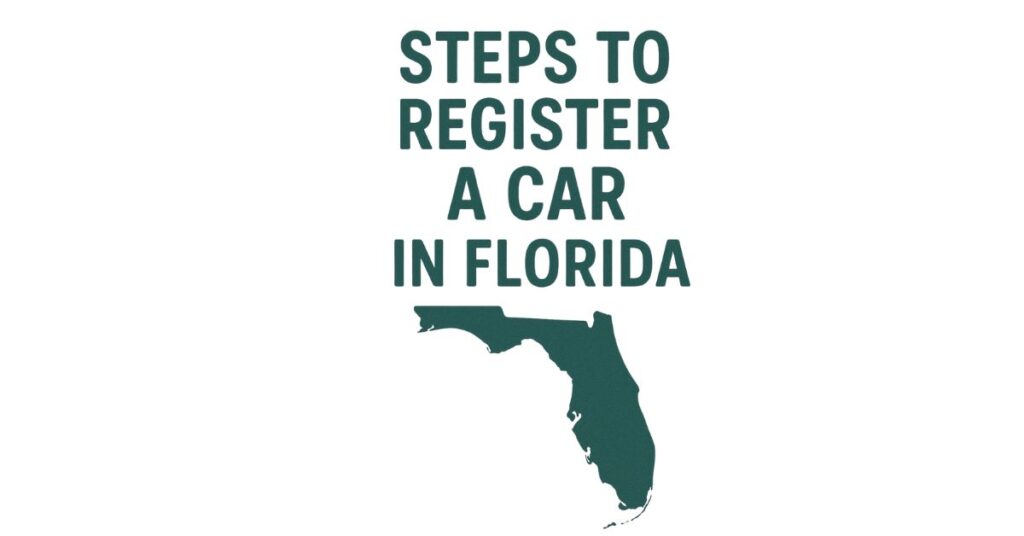Avoid Penalties: Florida Car Registration Requirements Explained

If you’re a Florida resident and drive a car, it’s essential to understand the Florida car registration process. Failing to comply with state regulations can lead to costly fines, penalties, or even having your vehicle impounded. In this guide, we’ll explain everything you need to know about vehicle registration in Florida to ensure you stay on the right side of the law and avoid penalties.
What Is Car Registration in Florida?
In Florida, car registration is a legal requirement for all vehicles driven on public roads. This process officially registers your vehicle with the Florida Department of Highway Safety and Motor Vehicles (DHSMV). Upon registration, you’ll receive a license plate, registration sticker, and vehicle title—all of which prove that your car is legally allowed to operate on Florida roads.
Florida Car Registration Requirements
To register your car in Florida, the Florida DMV has specific requirements you need to meet. Whether you’re registering for the first time or renewing, here’s what you’ll need:
- Proof of Ownership: This can be the vehicle title or a bill of sale if you just bought the car.
- Proof of Insurance: Florida law requires that you have a minimum level of car insurance before you can register your vehicle.
- Payment of Fees: There are registration fees that you must pay when registering your car. These fees vary depending on factors like your vehicle’s weight and type.
- Proof of Identity: A valid Florida driver’s license or another form of identification is required.
- Odometer Disclosure: For vehicles that are less than 10 years old, you must provide the current odometer reading.
Common Pitfalls: Car Registration Penalties in Florida
There are several common mistakes that could result in penalties when registering your car. Here’s what to watch out for:

- Late Registration: If you don’t renew your registration before it expires, you could be hit with late fees and potentially have your registration suspended.
- No Proof of Insurance: Florida requires proof of insurance when registering your vehicle. Failing to provide proof could result in penalties.
- Incorrect Documentation: Ensure your documents are correct and up-to-date. Missing or incorrect information can cause delays or fines.
- Expired Registration: Driving with expired registration could result in fines, and in some cases, your car could be towed.
How to Avoid Penalties: Tips for Florida Car Registration
Here are some simple tips to help you avoid penalties and ensure that your Florida car registration stays in good standing:
- Renew Early: Don’t wait until the last minute! Set a reminder to renew your vehicle registration in advance to avoid late fees.
- Verify Insurance: Always check that your car insurance meets Florida’s minimum requirements before attempting to register or renew your vehicle.
- Check Your Documents: Double-check that all required documents are accurate and current. This includes your vehicle title, insurance, and odometer reading.
- Use Online Services: Florida offers a convenient online registration system. Take advantage of online services to renew your registration without having to visit the DMV in person.
- Carry Proof in Your Car: Keep a copy of your vehicle registration in your car at all times to avoid any issues if you’re pulled over by law enforcement.
Steps to Register a Car in Florida
Follow these steps to ensure smooth car registration in Florida:

- Gather Required Documents: Make sure you have your vehicle title, proof of insurance, and other necessary documents.
- Visit the Florida DMV or Use Online Services: You can either visit your local DMV or tax collector’s office or use the online renewal option for your registration.
- Pay Fees: Prepare to pay the appropriate registration fees. Payment can be made via credit card, check, or cash.
- Receive Your Registration: After completing the process, you will receive your license plate, sticker, and vehicle registration certificate.
Florida Car Registration Fees Breakdown
Here’s a table with the Florida car registration fees for various vehicle types:
| Vehicle Type | Registration Fee | Additional Fees | Total Estimated Cost |
|---|---|---|---|
| Passenger Car (up to 2,499 lbs) | $28.75 | $10 Plate Fee | $38.75 |
| Passenger Car (2,500-3,499 lbs) | $46.75 | $10 Plate Fee | $56.75 |
| Passenger Car (3,500+ lbs) | $71.75 | $10 Plate Fee | $81.75 |
| Electric Vehicles | $135.75 | $10 Plate Fee | $145.75 |
| Motorcycles | $27.90 | $10 Plate Fee | $37.90 |
| Heavy Trucks (Over 5,000 lbs) | Varies Based on Weight | Varies by County | Varies |
Florida Car Registration Checklist
Use this checklist to make sure you have everything you need to register your car in Florida:
- Proof of Ownership (Vehicle Title or Bill of Sale)
- Proof of Florida Insurance (Must meet Florida’s minimum requirements)
- Current Odometer Reading (For vehicles less than 10 years old)
- Proof of Identity (Florida Driver’s License or ID)
- Payment for Fees (Credit Card, Check, or Cash)
- Completed Form HSMV 82040 (For title transfer if applicable)
- VIN Verification (For out-of-state vehicles)
FAQs
How long can I drive without registering my car in Florida?
You must register your vehicle within 30 days of becoming a Florida resident or purchasing a car.
What happens if I don’t renew my registration in Florida?
If you fail to renew your registration, you could face late fees, fines, and a possible suspended registration.
Can I register my Florida car registration online?
Yes! Many counties in Florida allow you to renew your registration online through the Florida DMV website.
What are the penalties for driving with expired registration in Florida?
If you drive with expired registration, you could be fined up to $100, depending on how long the registration has been expired.
Understanding Florida car registration requirements and staying on top of your renewal dates is the key to avoiding penalties. By following the steps outlined in this guide, checking that all your documents are in order, and using online services to renew your registration, you’ll stay compliant with Florida law.
For more information about Florida car registration or to begin the registration process, visit the Florida DMV website or your local tax collector’s office. Don’t risk fines—take action today!






